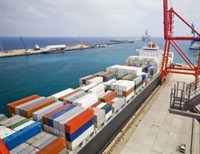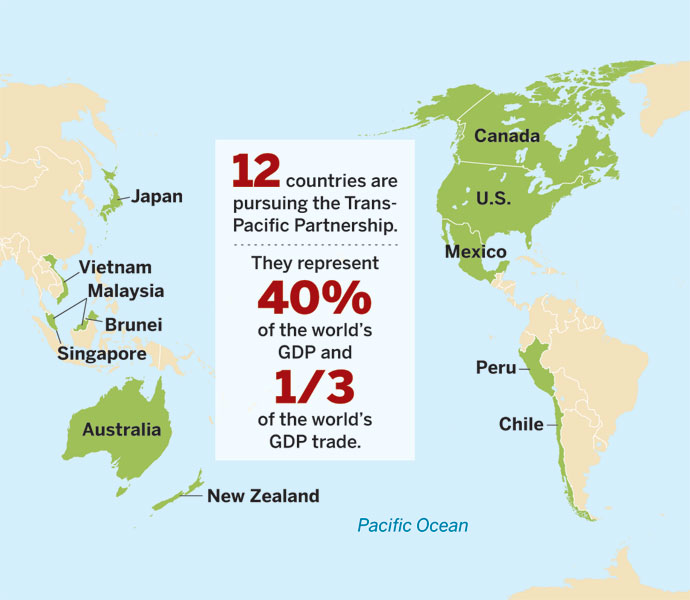Advertisement
Grab your lab coat. Let's get started
Welcome!
Welcome!
Create an account below to get 6 C&EN articles per month, receive newsletters and more - all free.
It seems this is your first time logging in online. Please enter the following information to continue.
As an ACS member you automatically get access to this site. All we need is few more details to create your reading experience.
Not you? Sign in with a different account.
Not you? Sign in with a different account.
ERROR 1
ERROR 1
ERROR 2
ERROR 2
ERROR 2
ERROR 2
ERROR 2
Password and Confirm password must match.
If you have an ACS member number, please enter it here so we can link this account to your membership. (optional)
ERROR 2
ACS values your privacy. By submitting your information, you are gaining access to C&EN and subscribing to our weekly newsletter. We use the information you provide to make your reading experience better, and we will never sell your data to third party members.
Policy
Backing Obama, Chemical Industry Squares Off Against Democrats And Activists Over Trade
Fight focuses on whether Congress should give President negotiation authority
by Glenn Hess
March 23, 2015
| A version of this story appeared in
Volume 93, Issue 12

For chemical manufacturers and other industries, free-trade agreements mean greater access to growing overseas markets, increased exports, and more high-paying jobs in the U.S.
“Boosting exports is one of the surest paths to a stronger economy and new jobs,” says Calvin M. Dooley, chief executive officer of the American Chemistry Council (ACC), a trade association that lobbies on behalf of the nation’s largest chemical companies.
But opponents, such as labor unions, maintain that trade agreements drive down wages and chase blue-collar jobs overseas as U.S.-based companies establish facilities and hire abroad.
Trade pacts negotiated by past Administrations “only benefited global corporations and not American workers who get brutalized by massive imports and jobs off-shored to exploit low labor and environmental standards,” says Leo W. Gerard, president of United Steelworkers, a union that represents approximately 30,000 chemical plant workers.
That sharp disparity in views is at the heart of a fight brewing in Congress over whether to grant President Barack Obama authority to complete two sweeping trade agreements. One pact is with a group of mostly Asian and Latin American countries. The other is with the European Union.
Advocates say the deals together would be worth tens of billions of dollars in new U.S. exports each year. But this opportunity won’t come about unless the President has the authority to finalize the agreements without the risk of Congress sending the pacts back to the drawing board.
Fast-track negotiating authority is formally known as Trade Promotion Authority (TPA). It empowers the President to unilaterally negotiate trade agreements and then submit them to Congress for yes-or-no votes without amendments that would force the Administration to reopen talks.
“This is important because, in the absence of TPA, negotiating partners are unlikely to put their best offers on the table, knowing that Congress can remove items from the agreement,” says Greg Skelton, ACC’s senior director of global affairs.
The expedited procedure also allows each chamber to approve the pacts by a simple majority vote instead of the two-thirds majority the Constitution requires to ratify international agreements.
“TPA would not only fast-track ratification of our pending free-trade agreements, it would also help ensure the best possible outcomes from the negotiations,” says William E. Allmond IV, vice president of government and public relations at the Society of Chemical Manufacturers & Affiliates (SOCMA). The trade group represents specialty chemical companies. “Our industry would see new markets open up for our products through expanded trade and elimination of nontariff barriers, which means increased investment, growth, and jobs,” Allmond asserts.
Congress has final constitutional authority to establish the terms on which the U.S. trades. But lawmakers have granted some form of enhanced trade powers to every President since Franklin D. Roosevelt. Supporters of fast-track authority argue that other countries won’t negotiate trade deals with the U.S. if the terms can unravel during congressional debate.
The authority expired in 2007, when a protracted standoff between President George W. Bush and the then-Democratic-controlled Congress allowed it to lapse. But with negotiations nearing completion on the 12-nation Trans-Pacific Partnership (TPP), Obama wants Congress to pass legislation to reinstate the fast-track procedures.
Potentially the largest free-trade pact in history, TPP would tie the U.S. economy with those of Australia, Brunei, Canada, Chile, Japan, Malaysia, Mexico, New Zealand, Peru, Singapore, and Vietnam. It aims to lower tariffs, establish strong protections for patents and corporate trade secrets, and level competition between multinational corporations and state-owned companies.
That agreement could boost U.S. chemical exports by $1.2 billion annually, Dooley says. Chemical exports surpassed the $190 billion mark in 2014 and are projected to grow nearly 8% per year through 2019 to $282 billion, according to industry forecasts.
Both TPP and the EU pact would help U.S. chemical manufacturers capitalize on the dramatic fall in production costs during the past five years because of lower prices for natural gas. This key feedstock has become plentiful and cheap with increased output in shale formations. “Even with the recent drop in oil prices, U.S. chemical manufacturers enjoy a distinct competitive advantage in global markets,” ACC’s Dooley says. That, in turn, will help expand other sectors of the U.S. economy, he adds.
For the specialty chemical sector, major growth areas are in regions such as Asia, which has seen an increase in manufacturing, SOCMA’s Allmond notes. “Increased market access shows that not only is our nation open for business but that other markets are open to U.S. manufacturers. If we don’t take our products around the world, then someone else will,” he says.
TPP, which would cover 40% of global gross domestic product and nearly 30% of world trade, is the centerpiece of Obama’s plan to position the U.S. as an economic power in the Pacific Rim and to counterbalance China’s influence in the region.
China isn’t party to TPP negotiations because its trade ministers have refused to accept the standards the agreement would require on issues such as the role of state-run enterprises and protection of intellectual property. But China isn’t standing on the sidelines. It’s attempting to convince its East Asian neighbors to create a rival 16-nation trade bloc that excludes the U.S.

Free trade is important, Obama explained in his weekly address on Feb. 21, because “95% of the world’s potential customers live outside our borders. Many of them live in the Asia-Pacific region—the world’s fastest-growing area. And as we speak, China is trying to write the rules for trade in the 21st century. That would put our workers and our businesses at a massive disadvantage. We can’t let that happen. We should write those rules.”
The White House, meanwhile, is crafting a separate multilateral trade accord with the 28-nation EU, the Transatlantic Trade & Investment Partnership. Those talks are at least a year away from the finish line.
But even before the U.S.-led trade deals with Asia and Europe are completed, both are being challenged—largely by the President’s own party. The Republican Party has traditionally been supportive of trade agreements because of their potential to spur economic growth. Consequently, most congressional Republicans are willing to give Obama fast-track authority.
“When the U.S. sits down at the negotiating table, everybody at that table has to trust us,” says Rep. Paul Ryan (R-Wis.), chairman of the Ways & Means Committee in the House of Representatives. “They have to know the deal the Administration wants is the deal Congress wants. We have to maintain a united front.”
But many Democratic lawmakers and a coalition of labor, environmental, and consumer activists vehemently oppose fast track. “The Administration is asking Congress to rubber-stamp this process. But we’re not going to rubber-stamp anything,” says Rep. Rosa L. DeLauro (D-Conn.).
She and other Democrats argue that Obama is asking for carte blanche to secretly negotiate trade deals that would send jobs abroad, suppress U.S. wages, weaken food safety and financial regulations, and undermine environmental and labor standards.
“Under fast track, all we get is an up-or-down vote on each trade deal. That is simply not acceptable. It is the opposite of our constitutional duty as members of Congress,” DeLauro remarks. “These deals affect everybody. We need to be able to scrutinize these deals page by page, line by line, word by word.”
Rep. Tim Ryan (D-Ohio) points to the U.S. trade deficit with South Korea that spiked to $25 billion last year, a 20% jump from before implementation of the U.S.-Korea Free Trade Agreement in 2010. The U.S. also had trade deficits in 2014 with free-trade partners Mexico ($54 billion) and Canada ($34 billion). “We’re seeing a disinvestment here in the U.S.,” Ryan says. “We have seen too many trade agreements passed with no proper debate or transparency, and I cannot stand by and support a trade policy that moves jobs overseas and cripples American manufacturing.”
Although the GOP holds majorities in both the House and the Senate, fast-track legislation would need Democratic votes to get through Congress, ACC’s Dooley points out. “It’s going to take comprehensive engagement by the Administration to develop a significant degree of Democratic support,” he tells C&EN.
“We need to see some Democratic leaders in both the House and the Senate step up and support the President,” says Dooley, a former seven-term Democratic congressman from California.
“While Republicans are prepared to provide a significant number of the votes that are going to be needed to pass TPA, I think they are going to demand—and I don’t think it’s inappropriate—that President Obama secure the votes of a significant number of Democrats to ensure that there is bipartisan support,” he says.
Passing trade legislation has often been difficult. When Congress last reauthorized fast-track authority in 2002, it was by a razor-thin 215-212 margin in the House, with 190 Republicans and 25 Democrats making up the majority.
A bipartisan group of lawmakers is drafting legislation to renew fast-track authority, and Congress could vote on a bill this spring. But a lingering dispute among members of the Senate Finance Committee over the bill’s content could delay action.
“It’s going to take further selling by the Administration to convince members of their own party, including the ones most ardently opposed to TPA, to see the benefits and get on board,” SOCMA’s Allmond says. “The votes will be very close,” he predicts, “but I’m confident there will be enough support to pass TPA.”




Join the conversation
Contact the reporter
Submit a Letter to the Editor for publication
Engage with us on Twitter